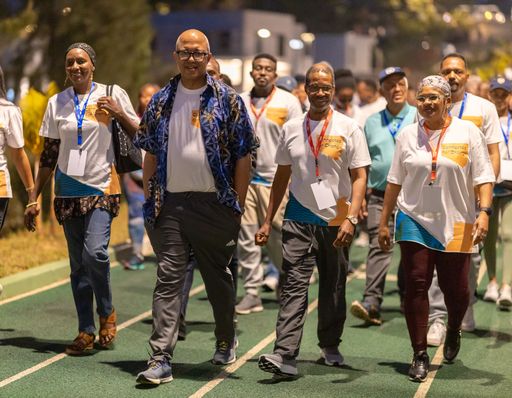African leaders and policymakers have been urged to seize control of the continent's health destiny and break the cycle of foreign aid dependency.
At the Africa Health Sovereignty Summit, held on Tuesday, August 5th, in Ghana, former Nigerian President Olusegun Obasanjo set the tone by declaring in his address, "Africa needs health without aid. We must stop wringing our hands and find solutions."
According to WHO’s latest analysis, health aid is projected to decline by up to 40% this year compared to just two years ago.
WHO Director-General Tedros Adhanom Ghebreyesus, who also attended the event, described the impact as standing at a "cliff edge", warning that "lifesaving medicines are sitting in warehouses, health workers are losing jobs, clinics are closing, and millions are missing care."
Window of opportunity
Tedros, however, insists that within the crisis lies a window of opportunity. "It's time to shake off the yoke of aid dependency and embrace a new era of sovereignty, self-reliance, and solidarity," he stated.
Tedros warned that debt service burdens are crowding out social investments.
"In 2023, Africa received 74 billion US dollars in aid – but lost 90 billion dollars to illicit financial flows and 55 billion dollars to corporate tax exemptions. Africa lost much more than it gained. This is unacceptable," says Tedros.
Host nation Ghana emerged as a model of proactive reform, with President John Mahama praised for unveiling several ambitious national measures.
WHO commended Ghana for uncapping its National Health Insurance Scheme and launching the Ghana Medical Trust Fund, aimed at combating chronic diseases without external support.
Domestic resources
A recurring theme throughout the summit, nonetheless, was the critical need to mobilise domestic resources creatively and effectively.
Several leaders advocated for health taxes on tobacco, alcohol, and sugary drinks, with Tedros noting that a 50% price increase on these products could generate $3.7 trillion globally in just five years.
Other key recommendations included pooled procurement to reduce medicine costs, investment in domestic manufacturing to lessen reliance on imported medical drugs, and better execution of health budgets, as Tedros pointed out that up to 13% of health spending in low-income countries currently goes unspent due to poor financial systems.

The summit called for a new global health architecture that reflects the continent’s priorities, innovations, and leadership—rejecting outdated frameworks built for a different era.



















